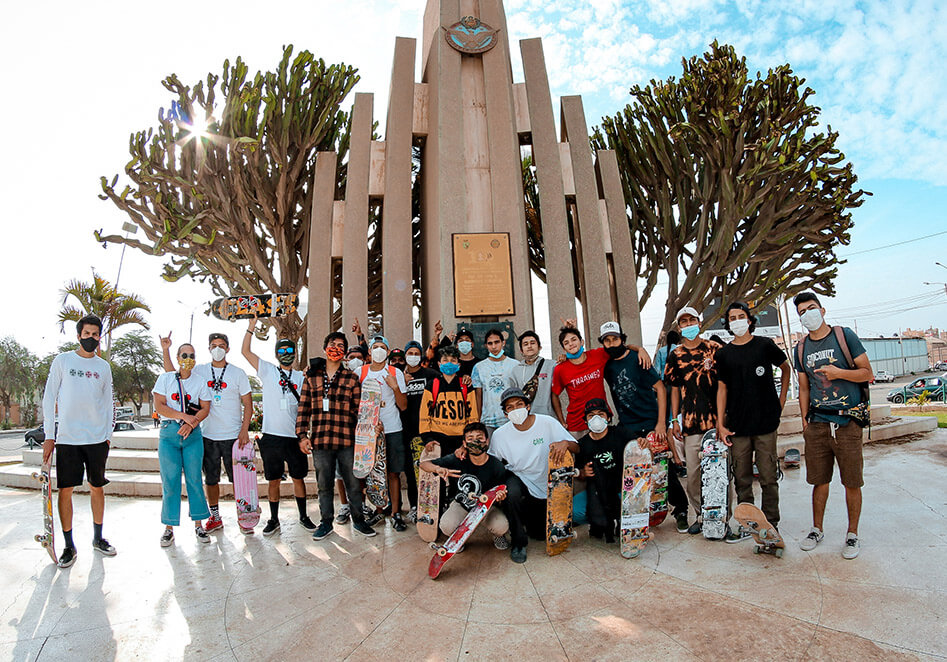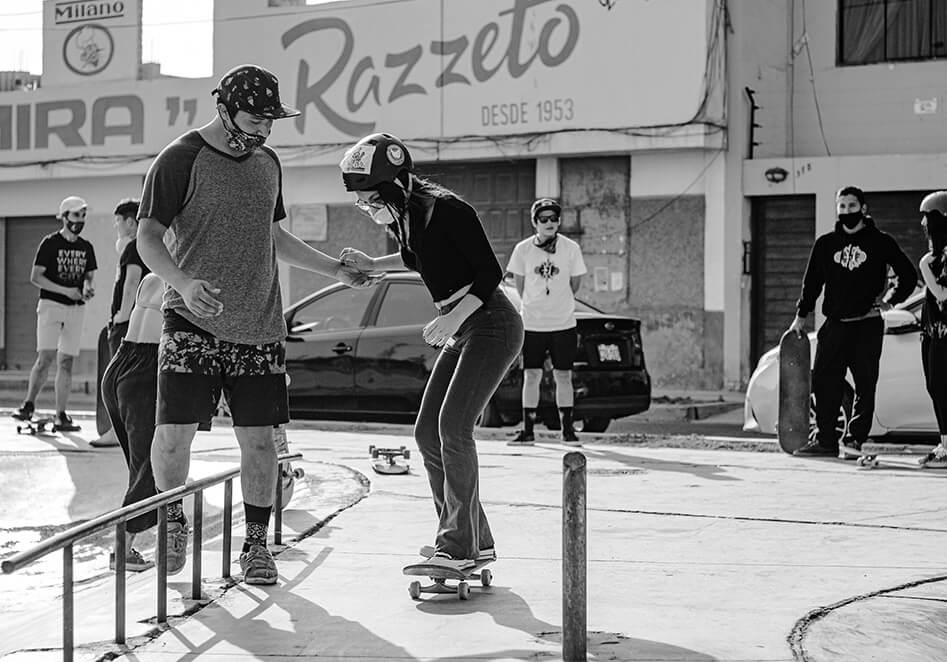Text by Thomas Hilbig
Pictures by Jesus Rengifo Saldaña
Concrete Jungle Foundation has sought to spread the positive values inherent to skateboarding for almost half a decade now. With the spread of COVID-19 and the subsequent toll it’s taken on many people’s mental health, we believe this work to be more important than ever. At a time when positive stories can be few and far between, a silver lining for this shared passion has been discerned: skateboarding and its positive impact on individuals and communities is thriving in the midst of this pandemic.

The effects of the pandemic on mental health have been potent. Quarantines and restrictions have led to social isolation, which in turn has increased depression, anxiety and frustration for many. Experts have been vocal on their concerns about how these consequences may affect young people in particular - with social interaction being key for their development.
As people across the world have scrambled to develop new coping mechanisms to deal with these effects, skateboarding has seen an unexpected surge. In the UK alone, there have been over 70,000 new faces engaging in the sport. These haven’t just been young males either, individuals of all ages and genders have been participating.
With social distancing measures in place across so many regions of the world, skateboarding has emerged as an ideal sport to pick up as it’s something that can be practised solo or with a small number of friends in a safe manner. Girls Skate UK’s Danni Gallacher notes how accessible the sport is in this context – all you need is a board and some flat ground to participate, although a skatepark doesn’t hurt of course. Neil Ellis from Skateboard England goes on further to add how skateboarding communities have assumed the function of a support group too: “It’s escapism. You go skating with your friends and everything feels normal”. This sentiment is echoed by many; new skater McCormack from Hull comments that: “I’ve had a history of mental disorders, and skating makes you remove any of those thoughts because you have to concentrate on that skill. For those moments or hours, you skate, you’re in another zone”. For these individuals, skateboarding provides an outlet for socialising or venting their frustrations without breaking social distancing measures. It provides a much-needed coping mechanism in an unprecedented time.

These findings are substantiated by experts undertaking research in the field. A joint research project between Instinct Laboratory and Flo skatepark has shown that there’s a strong correlation between people who skateboard and improved mental health – skateboarding can “reduce stress, increase confidence, and provide escapism”. Research conducted by the University of Southern California supports these conclusions too; a study backed by a $264,000 grant from the Tony Hawk Foundation explores the benefits offered by skateboarding which range from mental health benefits to other life skills. In the context of mental health problems rising amidst the fallout of COVID, it is no wonder that skateboarding has come forth as a coping mechanism for many.
In light of these new insights, it is hardly surprising to note how many skateparks have been popping up over the past year. In my (the author of this post) native UK, for example, state funding for new parks has recently been granted in Nottingham, Norwich, and Sheffield City Centre. Ask anyone in skatepark construction industry and they’ll tell you, we’re living in a golden age of skateparks construction!
These developments are not only on the state funded side either. The pandemic has provided an excellent opportunity for proactive skateboarders to take it upon themselves to build their own skateparks using abandoned spaces, the most notable example perhaps being the “The Grove DIY” in Dulwich, London – where a previously abandoned car park has been converted into a DIY skatepark.
In a period where positive stories are few and far between, skateboarding seems to have emerged as the protagonist in one of them. For many boys and girls, old and young, this little piece of wood on wheels has provided a way to safely escape the loneliness of lockdown. It has materialised as a new coping mechanism for an era deeply in need of one. Thank you, skateboarding.
Thomas Hilbig